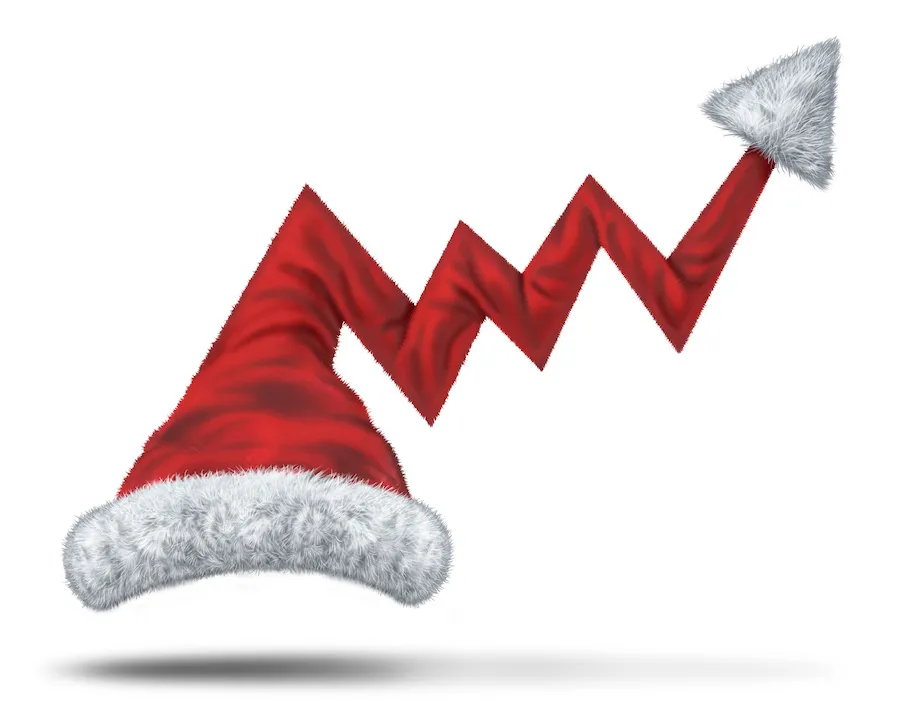2021 has been another momentous year for cryptocurrency. It’s not always been smooth sailing, but we can all agree that things have never been exactly dull.
So, why not sit back and look at some of the biggest headlines from a topsy turvy year for digital currency?
#Big players joining the party…
2021 saw a host of major players embracing cryptocurrency. For example, PayPal (NASDAQ: PYPL) gave users the ability to make purchases using cryptocurrency held within their wallets back in March. Elsewhere, Goldman Sachs relaunched its crypto desk, Los Angeles’ famous Staples Centre is set to become the Crypto.com Arena and businesses like Starbucks (NASDAQ: SBUX) now accept payment with certain digital currencies.
Whichever way you slice it, it’s been a year of increased mainstream adoption and visibility for crypto.
#Bringing in the big bucks
Cryptocurrency attracted more investment in 2021 than in all other years combined. A report released by Pitchbook Data in mid-December indicated that more than $30bn has been sunk into the digital currencies in the calendar year. This also dwarfed 2018, the second biggest year for investment, when $8bn was invested in crypto.
The same report stated that 2021 had seen the total market cap of cryptocurrency climb to $3trn.

#China’s crypto crackdown
Cryptocurrencies plummeted after China effectively banned them in September, making all crypto transactions illegal. China had been a key centre for crypto, with miners taking advantage of relatively affordable technology and energy costs.
The story doesn’t stop there, though, as it looks like other major nations could follow China’s lead with their own clampdowns.
Indian legislators seem to be leaning towards some sort of crypto restrictions, with the nation’s central bank particularly vociferous in its support for a ban on digital currencies. Meanwhile, Turkey has banned the use of cryptocurrency as payment amid concern over criminal activity at two of the country’s crypto exchanges.
#El Salvador
But not all countries are quite so hostile to digital currencies. El Salvador hit the headlines this summer as it adopted Bitcoin (BTC) as legal tender. The Central American nation became the first country in the world to do so at the beginning of September.
The change has not exactly been smooth sailing though, with technical problems bringing the El Salvadorian government’s crypto app down several times in just the first month.
President Nayib Bukele, who is spearheading El Salvador’s Bitcoin efforts, has also announced his intention to build a city funded by Bitcoin-backed bonds. The planned city, which sounds straight out of a James Bond movie, would also see the city being powered by geothermal energy from a nearby volcano.

#US crypto regulation
Stateside crypto investors might need to watch out for US regulations coming over the horizon. With their rising popularity, it was inevitable that cryptocurrencies would attract the attention of politicians and regulators.
In December, industry executives were quizzed by the House Financial Services Committee, as bigwigs try to get up to speed with the blockchain. This is just the latest indication that more controls will be introduced for crypto traders.
The year also saw the US Federal Reserve outline plans to develop crypto policy in 2021, which appears to primarily focus on examining the way in which banks are investing in crypto-assets.
#The rise of the memecoin
Just as meme stocks have enjoyed some time in the sun this year, memecoins have become all the rage. These include the likes of Dogecoin (DOGE) and Shiba Inu Coin (SHIB), which were initially founded as jokes but have since become enormously popular.
These two have become particularly popular, largely thanks to the attentions of Tesla (NASDAQ: TSLA) founder Elon Musk, who frequently Tweets about cryptocurrency and announced in December that his company would take payment for merchandise in Dogecoin.
This kind of publicity has helped Dogecoin become one of the world’s top 10 digital currencies. Not too shabby for a memecoin.
Indeed, Musk is so popular in this sphere, that a memecoin inspired by him was launched in April. We're not joking when we say that the coin is called Dogelon Mars (ELON).
#Coinbase joins the NASDAQ
In what was hailed as a pivotal moment for cryptocurrencies, Coinbase (NASDAQ: COIN) joined the NASDAQ at the beginning of April. The crypto exchange, which was founded back in 2021, smashed its reference price of $250 to end its first day’s trading at almost $330 per share.
Since going public, Coinbase’s share price has dropped by around 28% across the year to date and, at the time of writing, stands at $235.72 per share.
I’m sure we can expect many more crypto businesses to join major exchanges in the years ahead.

#A $610m crypto heist
In what could be the largest ever crypto heist, over $600m-worth of digital currency was stolen from Poly Network in August. The perpetrator was a so-called ‘white hat’ hacker, who claimed to have committed the theft in order to expose vulnerabilities in Poly Network’s security.
The hacker did return all the stolen booty before the end of the month, though not until Poly Network had offered $500,000 and a senior security job in exchange. Poly Network has since launched a ‘bug bounty programme’, offering up to $100,000 to those who find ways to bypass its security.
